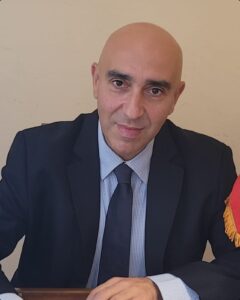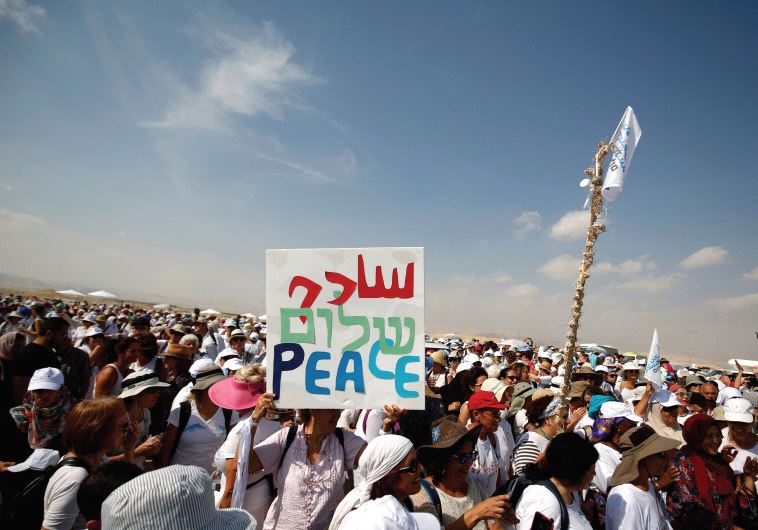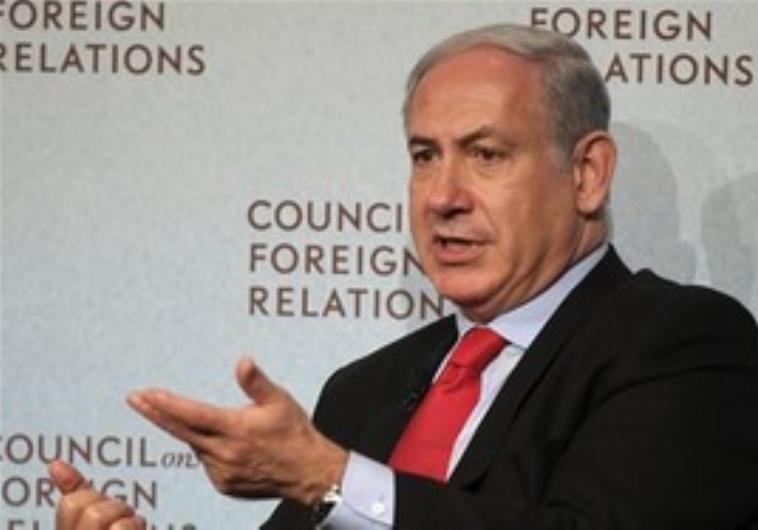During the Oslo peace process years, the thinking was that eastern Jerusalem would become the capital of a state of Palestine and western Jerusalem would be the capital of the State of Israel in a physically undivided open city. The Old City or the Holy Basin as the Israelis called it, would be under some form of joint rule. Fifty-five years after 1967, the possibility of eastern Jerusalem becoming the capital of a state of Palestine seems quite bleak.
When Gen. Rehavam Ze’evi was asked by Moshe Dayan to draw the new borders for Jerusalem that Israel would annex, the guidelines that instructed his map-making were as much territory as possible, with as few Palestinians as possible. And the so-called “united, undivided capital of Israel and the Jewish people” was born. But Jerusalem is very disunited and very divided. In fact, it is one of the most divided cities in the world. There is Israeli Jerusalem and there is Palestinian Jerusalem and the gaps between them in every aspect of life are unbearably large.
Fifty years ago, Israel annexed the land and thought it did it without annexing the people. Israel gambled that the Palestinians in eastern Jerusalem would not want to become Israeli citizens. Over the years, a few tens of thousands of them applied but according to unofficial statistics, only about 18,000 of them have received an Israeli passport. The process of attaining Israeli citizenship is very difficult, almost impossible and while many more may have applied, Israel is very frugal about allowing Palestinians in eastern Jerusalem from getting Israeli citizenship. Palestinians in eastern Jerusalem have Israeli ID cards and can travel freely all around Israel and even use Ben-Gurion Airport. But their status of “resident” is granted to them on the basis of the Law for Entry into Israel (they did not enter Israel, Israel entered them).
They are not permanent residents, because if they leave for a number of years to study or for any other reason, or if they rent or buy an apartment outside of Jerusalem and the center of their lives is no longer in Jerusalem, they will lose their right to live in Jerusalem. That has happened to about 30,000 Palestinian Jerusalemites who are no longer able to live in the city of their birth.
With the complete absence of a peace process and without a two-state solution in sight, which might have made eastern Jerusalem the capital of Palestine, some Palestinians I know are making the public demand that Israel should grant Israeli citizenship to all Palestinians in eastern Jerusalem. For example, Samer Sinjalawi, a Palestinian businessman and political activist from Fatah, says that it is the legal obligation of Israel to grant Israeli citizenship to all of the Palestinians in Jerusalem. SINJALAWI, 50, states that he has lived in Jerusalem for decades, pays his taxes and is law-abiding, but has no right to vote or to participate in the decisions that are made by a government that controls his life. He and all other Palestinians in Jerusalem see the Israeli masses taking to the streets and calling for democracy. Sinjalawi and other Palestinians rightfully ask where is their democracy. Sinjalawi will not be humiliated by Israel and beg for an Israeli passport. He says it is the responsibility and obligation, legally and morally, to accept that annexing the land comes with a price and the price includes the people who live there.
How can Jerusalem be the capital of democratic Israel and keep 40% of its residents without basic democratic rights? How can that be considered a democracy?
This is not the West Bank, which has not yet been annexed by Israel and is under military rule. Jerusalem was annexed in 1967 and in principle, the whole city is under civil rule. That was a long time ago and hundreds of thousands of people are living in the capital of a democratic country without being included in its democracy.
For too long this diversion from democracy has gone on without being questioned. The thought of granting Israeli citizenship to all of the Palestinians in eastern Jerusalem never seriously crossed my mind until my conversation with Sinjalawi. He said, “I want to vote. I have never voted in my life. I want to have the same right to try to control my future as every other person living in Israel.”
If a Palestinian state is ever established and if eastern Jerusalem becomes the capital of that state, the Palestinians of Jerusalem could have the choice of which citizenship they wish to hold. They could end up holding dual citizenship – there are many hundreds of thousands of Israelis with dual citizenship. Why not Palestinians in Jerusalem?
The bottom line is that it should be unacceptable for us to continue to make the claim that Jerusalem is united and that it is the capital of a democratic country while 40% of its residents hold no citizenship, not even of the country that controls their lives.
Note: Samer Abdelrazzak Sinijlawi is founding chairman of the Jerusalem Development Fund, a public corporation aiming to facilitate the development of Jerusalem by encouraging and sponsoring megaprojects in the city such as housing projects, hotels, commercial centers, and educational institutions. He is head of Diplomatic and International Relations (Fatah shadow leadership) and chairman and major shareholder of Group Alfasit, a regional energy investment group with branches in Jerusalem, Amman, Abu Dhabi, and Madrid



